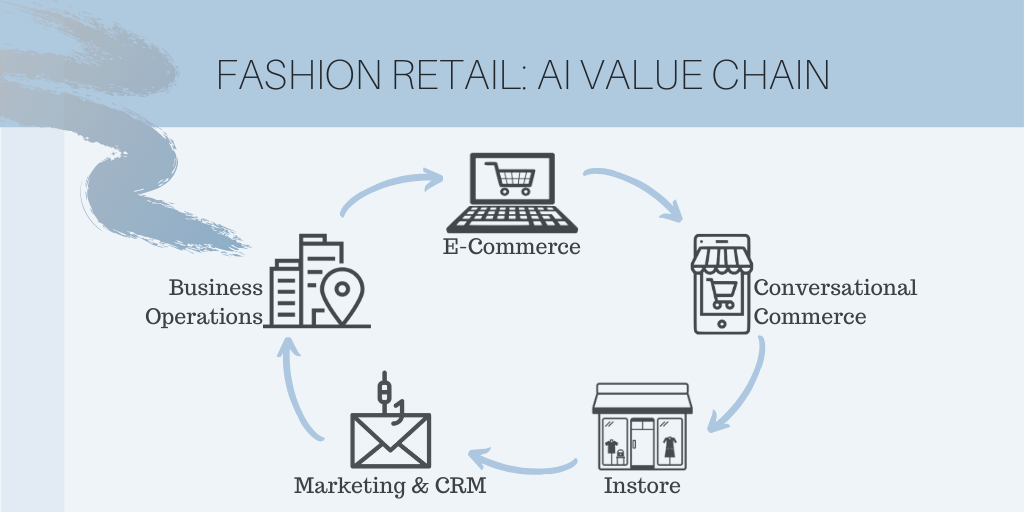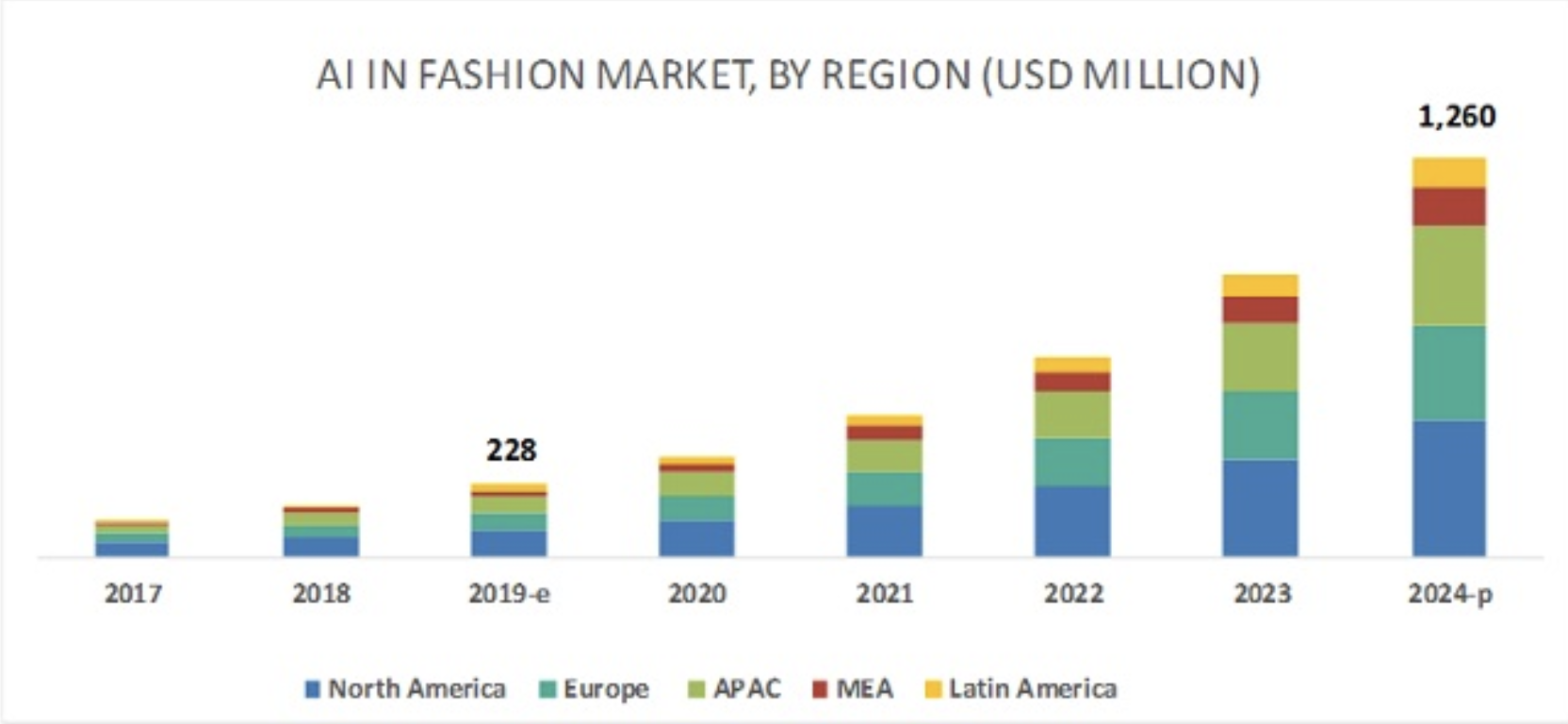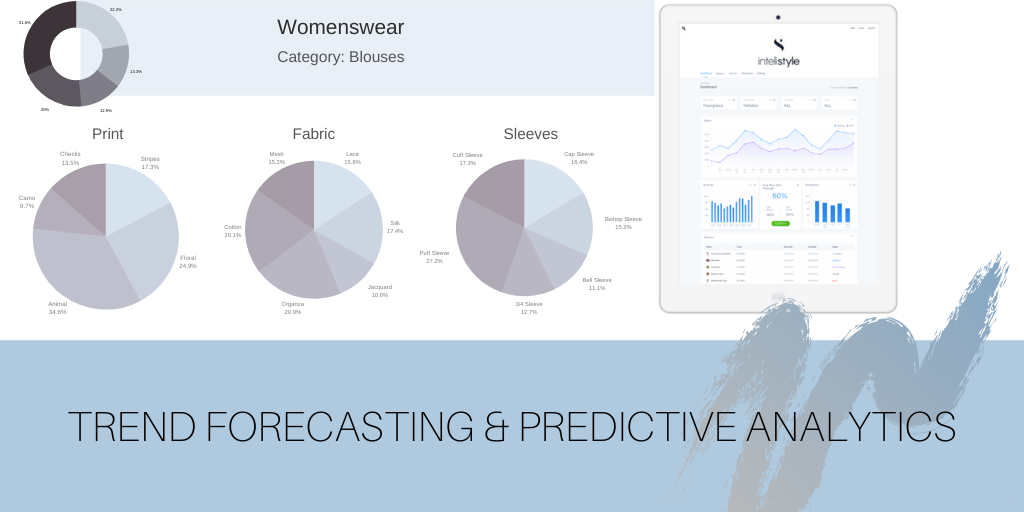Impact Of AI In Fashion Retail
Despite its immaturity, generative AI shows promise for assisting the fashion industry in increasing output, decreasing time to market, and improving customer service. Now is the moment to investigate the technologies.
Why AI in Fashion Is So Important?

The new instrument of artificial intelligence is so appealing because of this quest for speed and accuracy. Online retailers and companies are increasingly relying on artificial intelligence systems as data collection and processing capabilities improve.
Not only the fashion retail business but all of retail as a whole is being shaken up by innovations. The use of artificial intelligence is increasingly accessible to anyone without much technical training. An increasingly attractive and useful tool for retail organizations to use, it is becoming more accessible with user-friendly platforms and easy use cases.
Experts in the field are increasingly expecting that artificial intelligence will permeate every sector of society and the economy, including the fashion industry. Never before has it been possible to connect and maximize predictive analytics with valuable consumer data, product data, and other sources of data.
Read: The Beauty Of AI In The Wood Industry
The Impact of AI on Online Retail Business
 Online fashion retail is experiencing a dramatic increase in the amount and level of customization offered to customers. To keep up with this demand, AI and associated automated procedures are essential. Customers nowadays demand a higher quality of service in return for letting firms utilize their data. The new standard is rapid service, targeted advertising, and customization throughout the whole process.
Online fashion retail is experiencing a dramatic increase in the amount and level of customization offered to customers. To keep up with this demand, AI and associated automated procedures are essential. Customers nowadays demand a higher quality of service in return for letting firms utilize their data. The new standard is rapid service, targeted advertising, and customization throughout the whole process.
The graphics beside have been picked up from a research website to reflect AI in fashion industry by region from 2017-2024. Customers’ expectations for service and customization are being raised as more and more businesses embrace these new technologies. There has been a spate of bankruptcies at prominent clothing stores in recent years, and the common thread across these faltering businesses is their inability to meet customers’ demands for more customized, individualized shopping experiences. Every step of the consumer experience, from suggestions and search results to landing sites and email marketing, must be tailored to their interests. The scalability and velocity made possible by AI make this possible.
Read: 4 Common Myths Related To Women In The Workplace
AI Advantages In Fashion And Retail For 2024
- AI to Facilitate the Creation of New Products
Artificial intelligence (AI) supports and legitimizes the creative decision-making process in fashion product creation by monitoring design aspects such as color, fabric, patterns, and cut, together with their previous retail performance and projected performance indicators.
- Artificial Intelligence as a Designer
New garment designs, including sewing patterns, are created by AI using a robust algorithm that studies historical designs and projected trends. This is an extra step that retailers can automate the pattern-making and fit process, or they may transmit AI-designed garments straight to production. This drastically reduces the time it takes to go from concept to store by allowing human designers to make changes to these pre-designed clothing.
- Textile Production
By automating fabric quality control, pattern inspections, color matching, and defect identification, AI streamlines the fashion production process and allows it to grow. Artificial intelligence significantly reduces the time and improves the accuracy of manual production operations.
- Wearable Technology and Smart Fabrics
Smart textiles controlled by artificial intelligence hold great potential for the future of apparel. These garments might enhance performance, facilitate communication, conduct energy, and even adapt to the wearer’s needs as they evolve. Conversely, artificial intelligence in biotech enables the manufacture of substitute materials that are entirely biodegradable and cruelty-free, which is benefiting fashion firms who are moving towards more ecologically conscious practices.
- Buying and Merchandising
AI enables merchandising and purchasing teams in the fashion industry to make more informed decisions based on smart analytics, reducing the likelihood of incorrect forecasts. Product performance in the past and gut feelings have always influenced consumer choices. Because of the many changing variables, such as fashion trends, that impact sales, this forecast is inaccurate.
- Predictive Analytics
By using automatic product tagging, AI can conduct attribute-level market performance studies. Customers are not only told about the best-selling items, but also specific details like color, print, sleeve length, neckline, and more. Artificial intelligence also offers real-time data, so you can watch how trends and stock performance are changing as they happen, rather than having to wait for a season’s worth of data to be collected and analyzed. As a result, teams responsible for purchasing and merchandising may take the initiative to meet customer demand as it happens, ensuring that the company remains competitive.
- Trend Forecasting
To predict what items will be popular in the fashion industry in the future, AI scours social media, online marketplaces, and the catwalk for relevant data. The ideal product selection mix that would appeal most to a retailer’s client base is determined by combining this information with data on previous performance and consumer behavior.

-
- Personal Styling Platform
A versatile AI Styling Platform automates and expands high-quality styling services, allowing retailers to establish, monitor, and manage detailed customer profiles. The platform’s AI quickly creates hyper-personalised suggestions for every customer. Lastly, the consumer has the option to add these outfits to their shopping cart, share them via email, or have them brought to them as a personal style box by a fashion concierge.
- Visual Merchandising Platform
A platform driven by artificial intelligence can help visual merchandising teams expedite the process of curating product pages for the online shop. To better target various trends, client demographics, and geographical locations, AI curates personalized pages. Reducing the time and effort spent on manual product presentation, automated product pages may be edited using a drag-and-drop interface.
- Performance Analysis
An internal dashboard driven by AI allows merchandising managers to keep tabs on thorough performance analysis for every team member. Team resources are better used and overall performance is enhanced when team members are assigned to customer/product segments where they excel.
- Managing Inventory
Accurately determining the optimal regional allocation and market drop schedule for inventory is made possible by AI’s extensive analytics, which fashion merchants can use to track and manage the full product life cycle in real time.
- Product and Pricing Mix Strategy
With the use of AI-driven rich data, retailers can create individualized product and price strategies for each customer and market group. Businesses may avoid surplus inventory and price cuts by making data-informed decisions that target the optimal product-pricing mix for each market. To enhance stock turnover, AI compares demand predictions with historical data to determine when it will be necessary to “move” older inventory. To fulfill demand and avoid retail clustering, inventory can be redirected to certain locations. To reach the relevant value-seeking customers at the right moment, it is possible to plan and prioritize promotional techniques and markdowns appropriately.
Read: Top 10 Benefits Of AI In The Real Estate Industry
- Competitor Analysis
Artificial intelligence (AI) keeps an eye on the prices that competitors are charging and suggests the best prices to get an edge and maximize profits. During certain seasons, retailers may maintain prices low with little profit margin, while others allow them to raise prices slightly for maximum profit.
- The Supply Chain: More Effectiveness, Flexibility, and Long-Term Viability
Reduced manufacturing of unsellable styles is a direct result of a greater understanding of the consumer and the market, which in turn leads to less product waste. Supply chain management may potentially benefit from early AI use for increased efficiency, agility, and sustainability.
Final Thoughts
Artificial intelligence (AI) has a tremendous effect on the fashion business and provides merchants with a much-needed advantage. It improves revenue and profit, decreases mistakes, and aids in predicting what consumers will purchase and retain. Going forward, the use of AI by fashion stores will determine their success or failure.
Can you afford to fall behind when 75% of merchants are trying to improve their AI skills through external technology partnerships?
Read: How should CFOs approach generative AI
[To share your insights with us, please write to sghosh@martechseries.com]

Comments are closed.